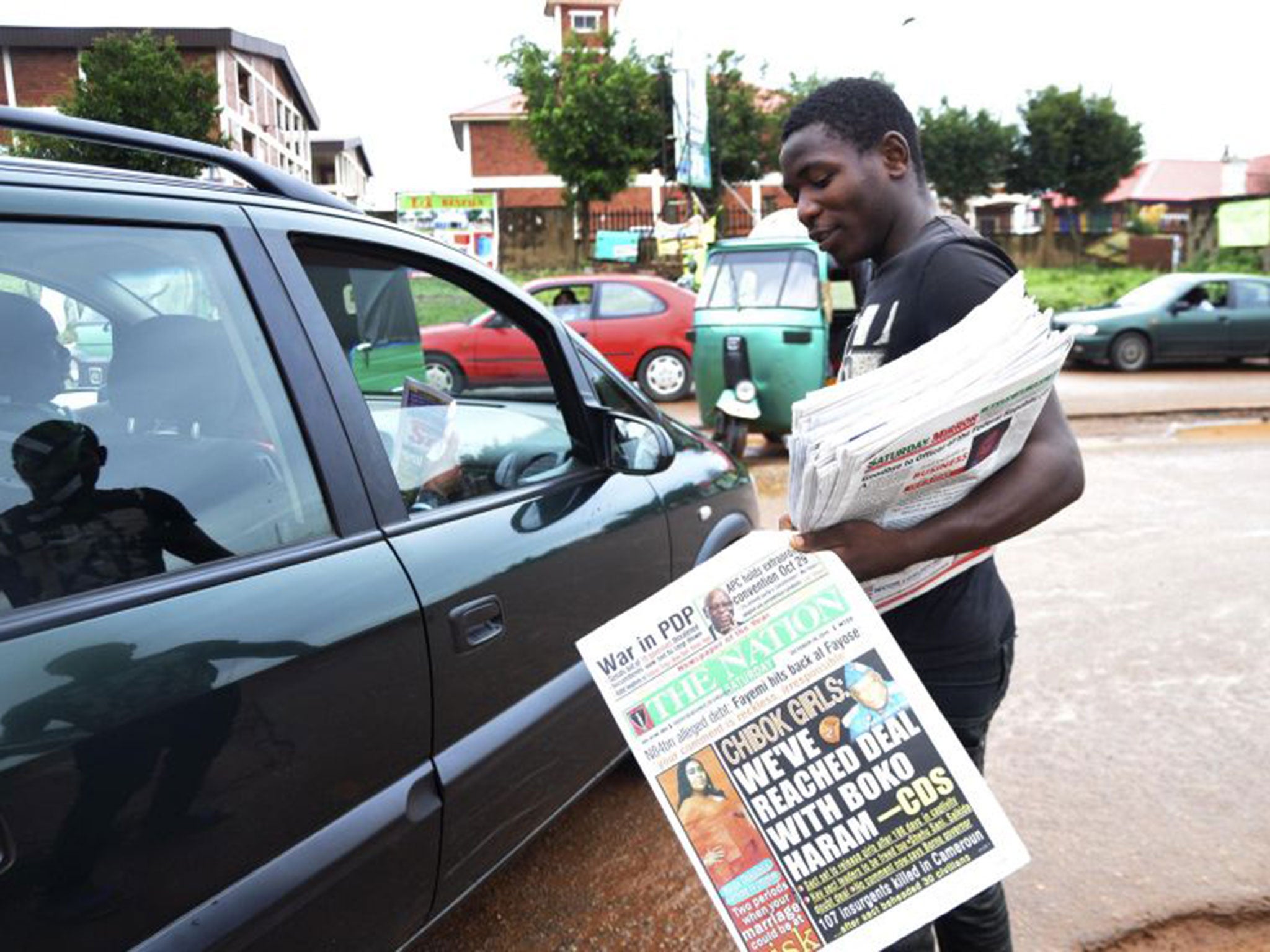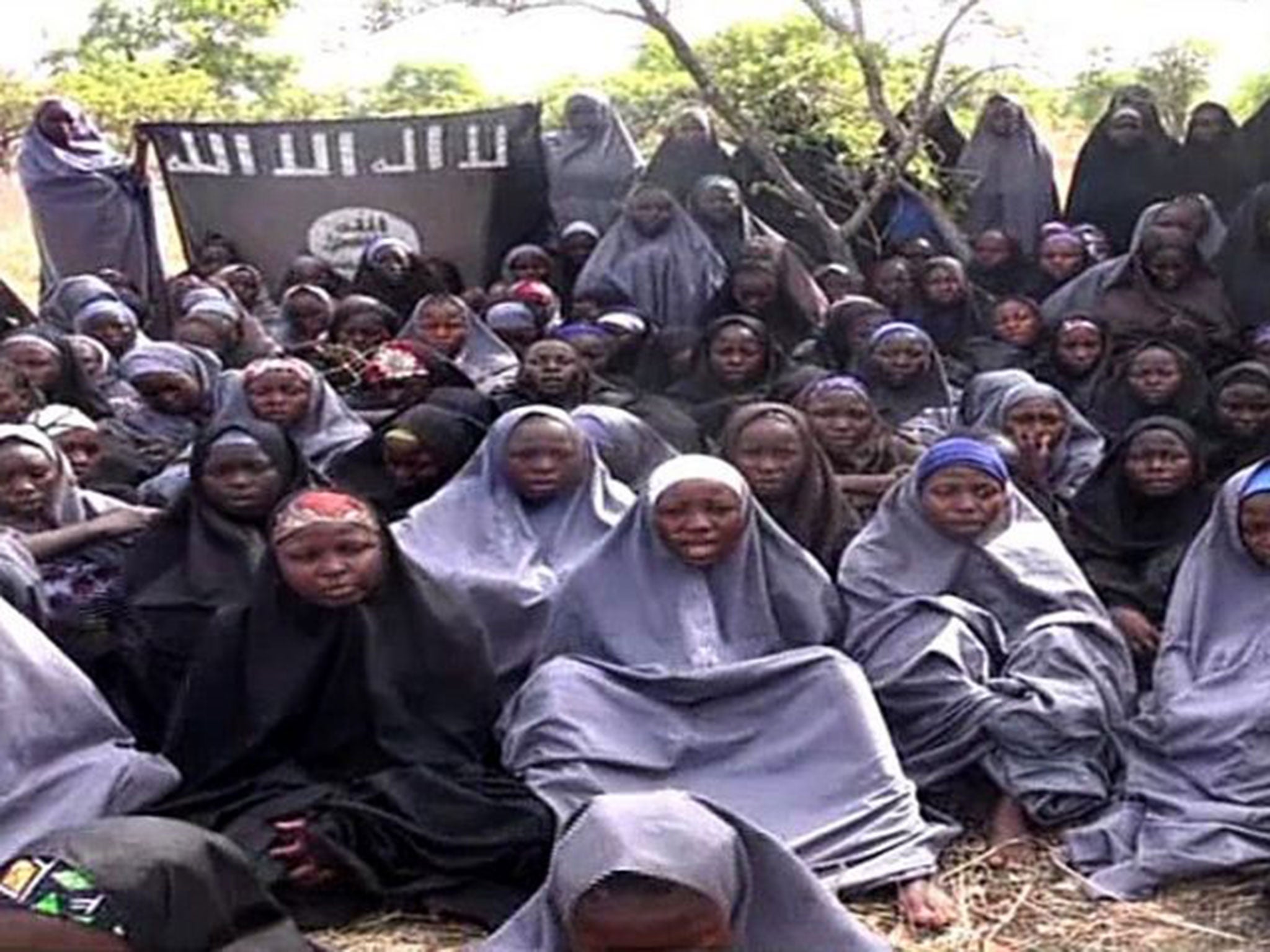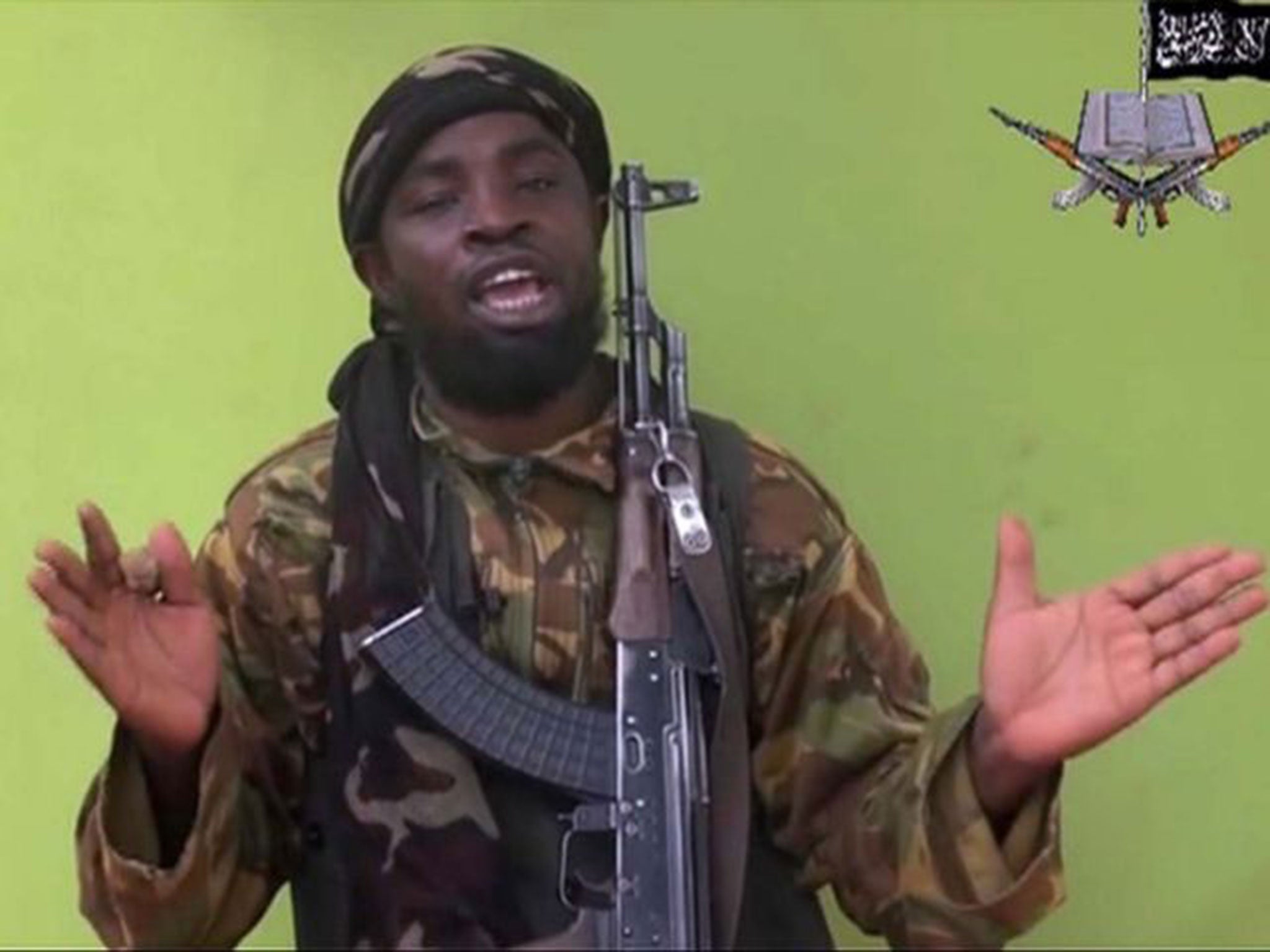Kidnapped Nigerian schoolgirls: Government claims ceasefire deal with Boko Haram that will bring missing girls home
But families react with caution to news that six month ordeal may nearly be over

Relatives of the more than 200 girls taken by militant group Boko Haram in Chibok, northern Nigeria expressed hope yesterday that a ceasefire deal said to have been signed between the Nigerian government and the Islamist group will end their nightmare and bring their families home.
However, restraint appeared to be the order of the day, with the details of any deal still hazy and no word yet from Boko Haram's leader, Abubakar Shekau. Wild celebrations might have been expected at the apparent end of an ordeal that has lasted more than six months but they were not in evidence, with many cautious about what might happen. But officials have made clear that the return of the girls is part of the deal.
"We will know the negotiations were successful when we see the girls physically. And then we will know it is true. And then we will celebrate," said Bana Lawan, chairman of Chibok's local government, told the Associated Press.
Another resident, community leader Pogu Bitrus, told the news agency that "people rejoiced, but with caution".

Some reports on Friday night suggested the girls, taken from a school in Chibok back in April, could be released as early as tomorrow in neighbouring Chad – but Reuters reported yesterday, citing two senior government sources, that the Nigerian government would be looking to secure the release of the girls by Tuesday.
Yesterday Mike Omeri, a government spokesman, said the authorities are "inching closer to the release of the Chibok girls". He later told Reuters that "discussions will continue in Chad next week, and on the basis of those discussions we'll have more details" on the girls' release.
The second source quoted by Reuters said that there might need to be further meetings in Nigeria or the Chadian capital N'Djamena to iron out the rest of the details for the deal. "We have confidence in those we are negotiating with, but we are still doing it with considerable caution. Boko Haram has grown into such an amorphous entity that any splinter group could... disown the deal," he reportedly said.
During its 12-year existence – the past five have seen the group trying to create an Islamic state in the north of the country – Boko Haram has been split. Doubts have been raised by some analysts about Danladi Ahmadu, the self-proclaimed "secretary general" of Boko Haram who was named by President Goodluck Jonathan's principal secretary, Hassan Tukur, as the Boko Haram's representative in the talks. Ahmadu gave an interview to Voice of America in which he confirmed the ceasefire that was officially announced by Air Chief Marshal Alex Badeh, the head of Nigeria's military forces, on Friday.
In the interview Ahmadu appeared to say that he had not even met Abubakar Shekau.
This is not the first time a ceasefire has been called, hence the trepidation on the part of families in Chibok. In July 2013, when a government minister announced an agreement, Shekau quickly denied it using a video message – his preferred means of communication. He said that whoever the government negotiated with did not speak for him, and that he would never talk to infidels.

Leaders of the #BringBackOurGirls campaign, which gained the backing of politicians and public figures worldwide – including the US First Lady, Michelle Obama – summed up the mood.
"We are really cautious because there have been many times that such optimism has been expressed but did not materialise," Obi Ezekwesili, a former education minister said in a TV interview on Saturday. "But all the same, we are hopeful," she said, according to the AFP news agency.
Quoted by the Leadership newspaper yesterday, the headteacher of the school from where the girls were taken, Asabe Kwambura, said she would be the "happiest person in the world" if the girls were to return
President Jonathan has faced criticism over his response to the abduction of the girls – and Boko Haram's continuing insurgency. He was set to attend a rally in Abuja yesterday where he was expected to officially announce his candidacy for presidential elections next year, leaving some to question the timing of the ceasefire announcement.
Publically, the President has also always said he would not release Boko Haram prisoners, a central demand of the group – but there has been speculation about such a deal.
Other than the girls, some of whom have escaped back to their families in the months since they were taken, many in the northern provinces where Boko Haram have killed thousands during their insurgency will be hoping the ceasefire holds. However, yesterday there were reports that suspected Boko Haram militants had killed several people in a number of attacks on Nigerian villages that occurred after the ceasefire announcement, security sources and witnesses told Reuters.
Join our commenting forum
Join thought-provoking conversations, follow other Independent readers and see their replies
Comments